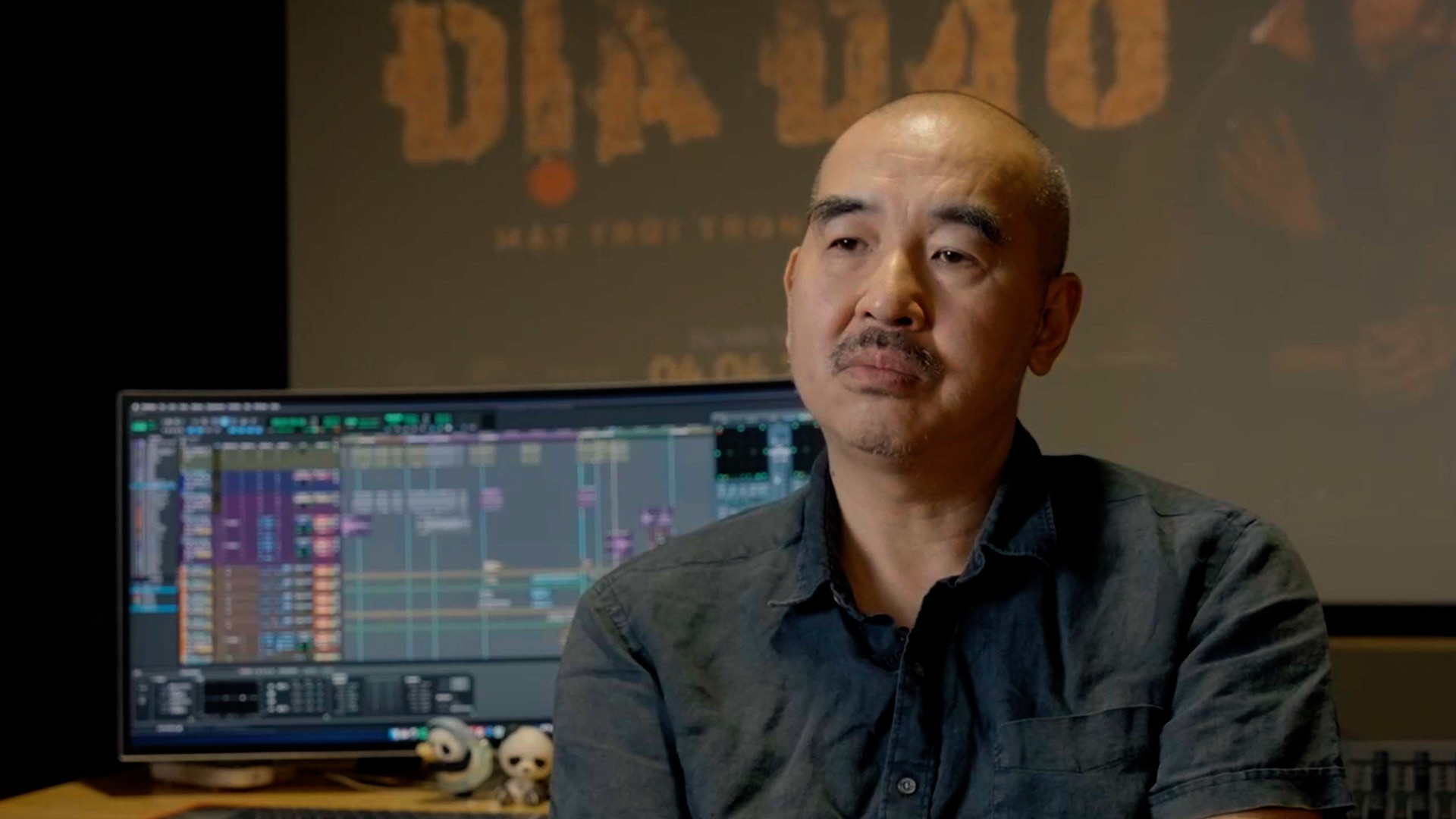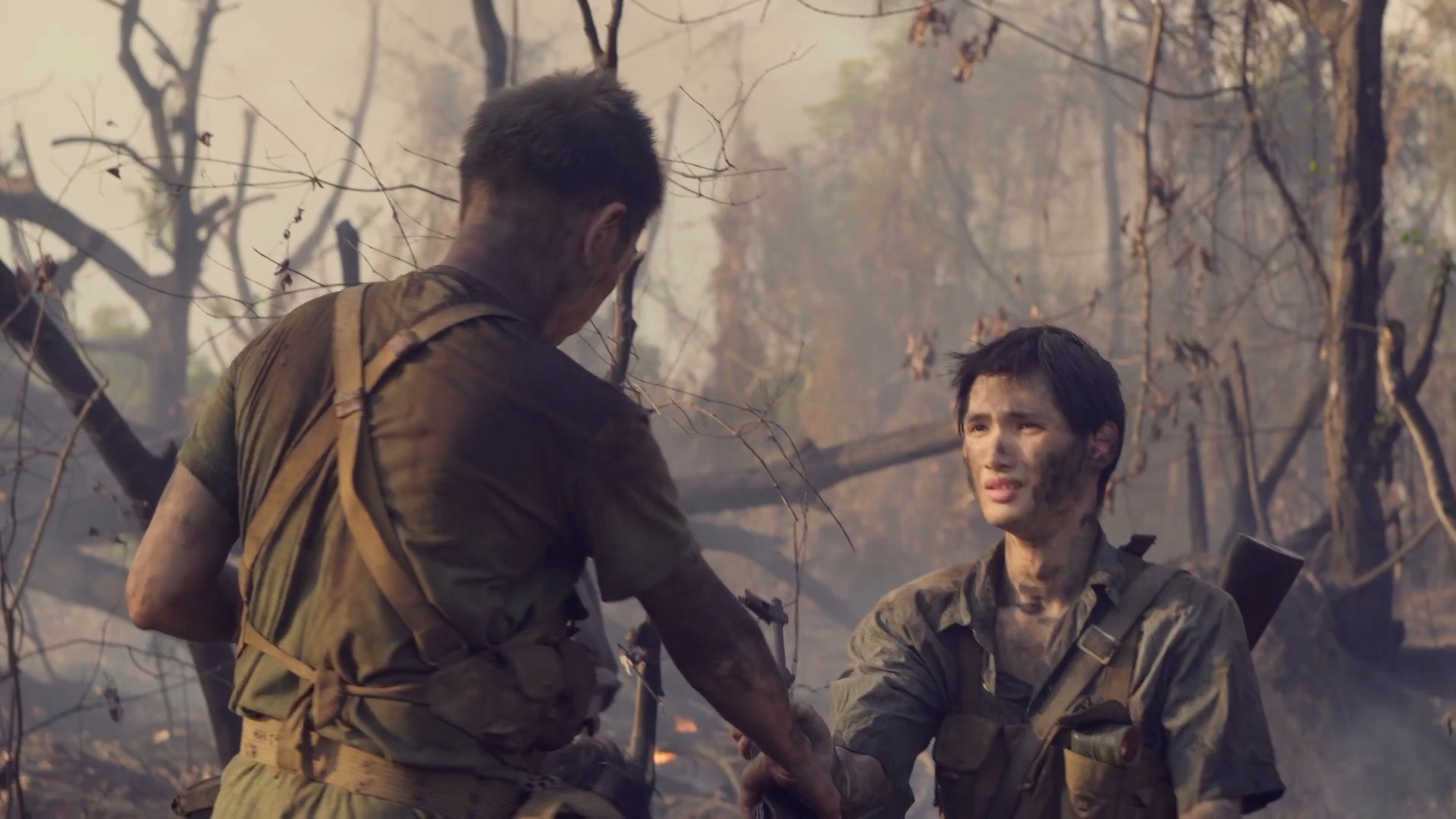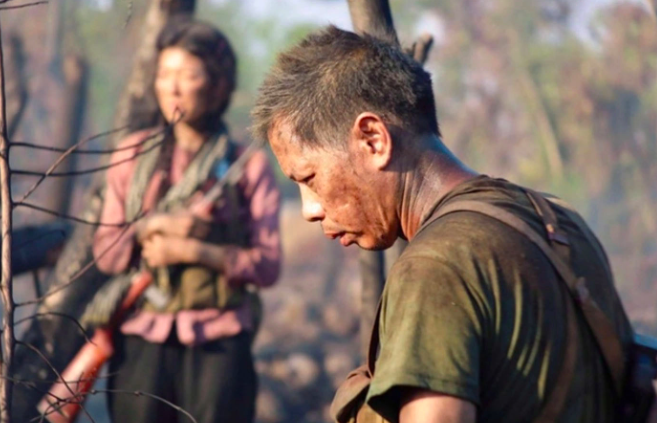
- You’ve made war-themed films before, such as the acclaimed Living in Fear, but Dia Dao seems like a completely different challenge. What pressures did you face in bringing this story to life?
I knew from the beginning this was a difficult subject, but the story of Cu Chi carries immense power. I wrote the script between 2014 and 2016. Initially, I approached state-run film production units, but the budget was far too limited. One major obstacle was that public and private funds couldn’t be combined due to public investment laws. After finishing the script, I gave it to an American director who was astonished.
I later worked with an Australian production house, and they planned to shoot the film there. But this is a Vietnamese story, a national point of pride - it couldn’t be shot in Australia. Then the COVID-19 pandemic hit, so the project was postponed until 2022, when investors began considering a film for the 50th anniversary of national reunification. That’s when I finally secured funding for Dia Dao - first from one person, then from six investors who all agreed to finance the production.
- Can you disclose the production budget for Dia Dao?
The production budget reached 55 billion VND (approximately $2.2 million), not including marketing costs.
- For a film like this, it’s clear the goal isn’t commercial profit but historical and ideological value?
Exactly. The investors understood that. They didn’t expect to recoup the investment. If they had, they would’ve funded a film by Tran Thanh or Ly Hai. I wanted to make this movie as a tribute to those who sacrificed their lives for the nation.
Everyone involved in Dia Dao shared that sentiment, which is why the film came to fruition. We wanted to create something meaningful to honor the martyrs. It was a brutal journey, but a film worth making. I don’t think there’s ever been a production this intense.

- Over the decade-long process, which period was the hardest for you?
(Shakes head) I never felt like I was losing anything. I always believed that a story this powerful would eventually be made. The Cu Chi tunnels are so gripping - like an action film, but deeply human. It tells of an extraordinary war where just a few villagers, armed only with determination, resisted one of the world’s most powerful militaries.
- Was the filming environment especially challenging, considering you couldn’t shoot in the actual Cu Chi tunnels?
No one even considered filming inside the real tunnels - it’s simply impossible. We had to build our own set and simulate the conditions, which came with countless complications. It was a major challenge. Actors had to be in peak physical condition, as they needed to navigate narrow tunnels while carrying gear.
- Did you have special training requirements for actors before filming began?
I gave them two months to prepare. All actors had to fully commit to the film and stop taking on other jobs. Thankfully, everyone was dedicated, and no one dropped out mid-project. By the end, they were so immersed that they felt like comrades and called each other by their character names, not their real names.
- Was there any actor you were particularly impressed with?
They all delivered excellent performances, even the newer, less experienced ones. There was a young actress, fresh out of school, who had to perform grueling close combat scenes with a dagger. I considered using a stunt double, but it didn’t work out.
So she gave her all - bruised limbs, even enduring a scene where she was yanked into a tight tunnel. They had to crawl through those tunnels with rifles and equipment strapped on. A single slip could cause injury. During one explosion scene, my heart stopped - but fortunately, no one was hurt. Only Thai Hoa lost a toenail when he tripped over a tree root.

- Now that the film is finished and set for release, is there anything you regret?
I only regret what I could have changed. Otherwise, there’s no need for regret - I gave it everything. Fate will take it from here. This was the first time that, even after wrapping, I had the actors reshoot scenes up to six times.
For example, actress Ho Thu Anh had already finished her weight-cutting regimen, but when we had to reshoot, she had to lose 5–6kg in just one week. She no longer trusts me - she keeps her figure slim at all times now, just in case I call her back.
- You’ve never cast your family members before, but this time your son has a small role in Dia Dao. Has the “curse” been broken?
If someone fits the role, they get the part - simple as that. Yes, our family principle is that everyone does their own job and speaks up when needed. I get very intense during production, so it’s best we stay in our lanes.
- Did you personally cast your son or did the casting team handle it?
The casting team works with its own network. Phong - my son - is very thin, and the film needed skinny actors. He was eventually cast as part of the communication unit. Though it was a minor role, he had to fly to Saigon a week early for Morse code training with the Ministry of Information's instructors.
- Do you think your wife, actress Tu Oanh, will ever appear in one of your films?
It’s possible - if she’s right for the role. I’m fair in this matter. If art treats me with fairness, I owe it the same.
My Anh